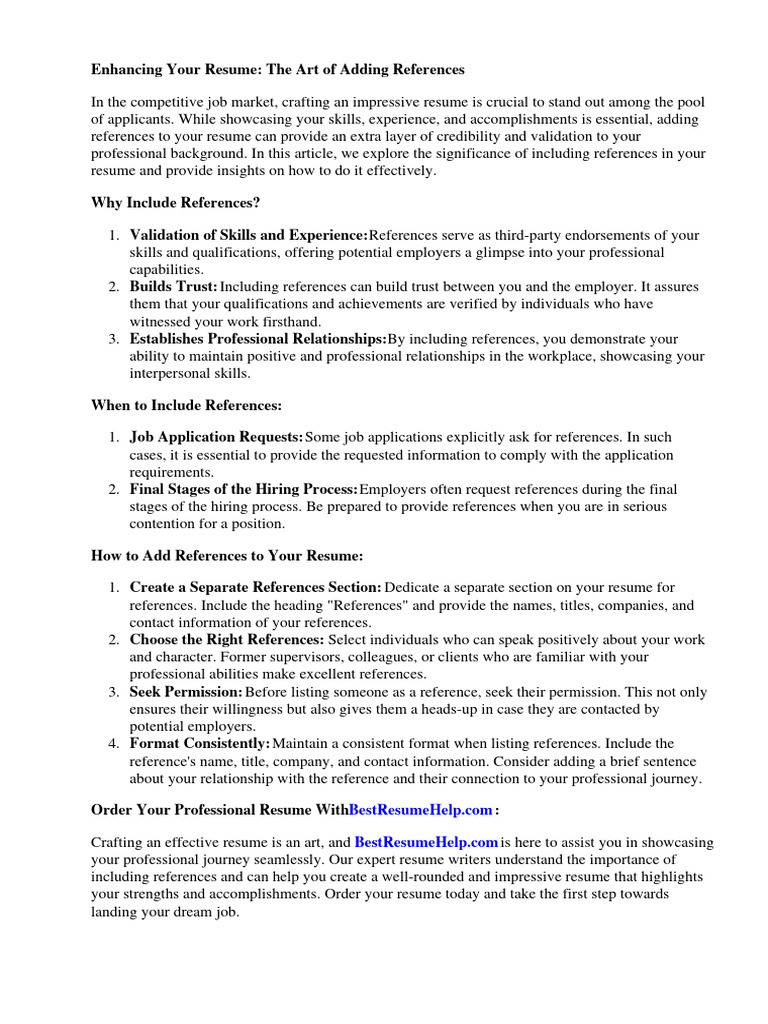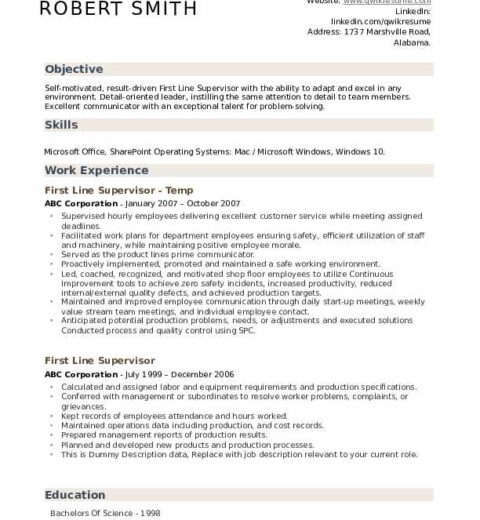In the competitive landscape of job seeking, a critical question looms large: Should you include references on a resume? It might seem like a benign consideration, yet it encapsulates a plethora of strategic nuances worth unpacking. Employers typically seek reassurance that candidates possess not only the requisite skills but also the character and professionalism to thrive within their organizations. Thus, the inclusion of references could serve as a powerful affirmation of these attributes. However, is it always advisable to append references, or could this practice potentially backfire?
To address this inquiry, let’s explore the multifaceted nature of references on resumes, contrasting varied perspectives while also scrutinizing the implicit ramifications of inclusion versus exclusion.
First and foremost, the traditional wisdom has often prescribed that professionals should include references on their resumes. This classical approach facilitates immediate validation of a candidate’s qualifications. When hiring managers sift through heaps of applications, an explicit mention of references can elevate a resume above others, instilling a sense of confidence. After all, glowing testimonials from esteemed figures can undeniably bolster one’s candidacy.
Nonetheless, ponder for a moment: does including references on the resume itself represent a strategic advantage in our digital era? Consider this: many employers now prefer to request references on a selective basis, often after an interview has taken place. Timing can be everything, and presenting references prematurely may inadvertently undermine your negotiating position. When you safeguard references until explicitly asked, you retain the power to choose individuals who can eloquently vouch for your recent accomplishments, rather than relying on outdated contacts.
In the interest of clarity, let’s delineate the main components influencing the decision on whether to feature references prominently on your resume.
1. Industry Standards & Expectations:
Different sectors uphold varying customs related to references. For instance, in creative industries such as advertising or design, showcasing a portfolio may take precedence over providing references from former employers. Yet, in more traditional fields like finance or education, references may hold greater weight. Understanding the industry’s expectations can guide whether to include this section.
2. Potential Space Considerations:
In crafting a resume, the cardinal rule is to maintain brevity while conveying essential information. A standard resume should generally span no more than one or two pages. If you find your document becoming congested with superfluous details or irrelevant entries, consider that listing references might compromise your narrative. Each word should serve a purpose; hence, repurposing that valuable real estate for impactful descriptors of your skills and experiences is often more prudent.
3. The Rise of Digital Networking:
The advent of online platforms such as LinkedIn has transformed how employment references are secured and evaluated. Nowadays, potential employers often investigate candidates’ backgrounds through these digital channels. Thus, including references may render them superfluous. Utilizing your LinkedIn profile allows hiring managers to peruse recommendations at their own convenience, normalizing the practice away from the resume.
4. Cultural Context:
Cultural variables may also play a pivotal role in the decision. In some regions, references are deemed indispensable, while other locales may view them as unnecessary or even presumptuous. Understanding the cultural dynamics of the workforce you are entering is key. Failing to read the room could disaffect potential employers from the outset.
5. The Element of Surprise:
Employers relish surprises—those small revelations that pleasantly enhance their perception of candidates. When references are unfurling after an interview, they serve as an unexpected boon that can match or exceed their expectations. By saving references, you cultivate suspense, prompting employers to anticipate your follow-up with eagerness.
In light of these considerations, what might be the best course of action? One could approach the matter judiciously. Rather than placing references directly on your resume, you might opt for a statement such as “References available upon request.” This subtle touch conveys your intent to provide verifiable source material while preserving the fluidity and professionalism of your resume.
Regardless of your decision, meticulous preparation remains paramount. When approached for references, proactively communicate with your chosen individuals. Equip them with pertinent insights about the job you are pursuing, the skills you wish to highlight, and what you hope they will emphasize. Ensuring your references are well-prepared enhances the likelihood of receiving tailored endorsements that resonate with the hiring manager’s criteria.
Furthermore, periodically revisiting your references maintains their relevance and affirms your relationships. An occasional check-in preserves rapport and keeps these professional connections alive, thus bolstering your future prospects.
In conclusion, the decision to include references on a resume is not a one-size-fits-all edict. It necessitates a careful evaluation of industry standards, cultural nuances, digital networking dynamics, and personal preference. While references can be powerful tools in weaving your professional narrative, judicious utilization can yield more significant results than mere inclusion. Ultimately, the question isn’t simply whether to include references, but rather how to adapt them as a strategic asset in the employment arena. By thoughtfully considering the factors at play, candidates can craft resumes that truly resonate and stand the test of time.




